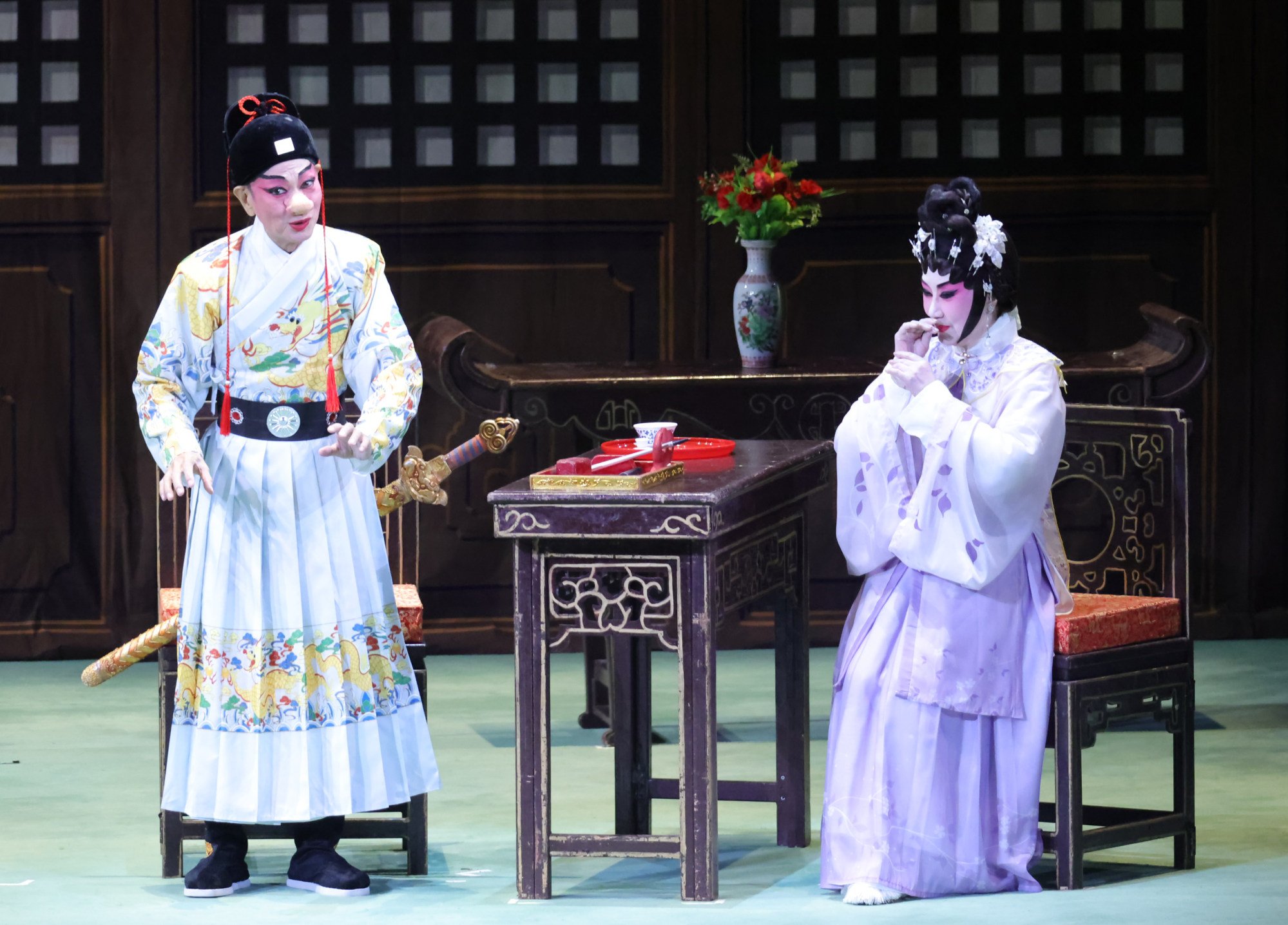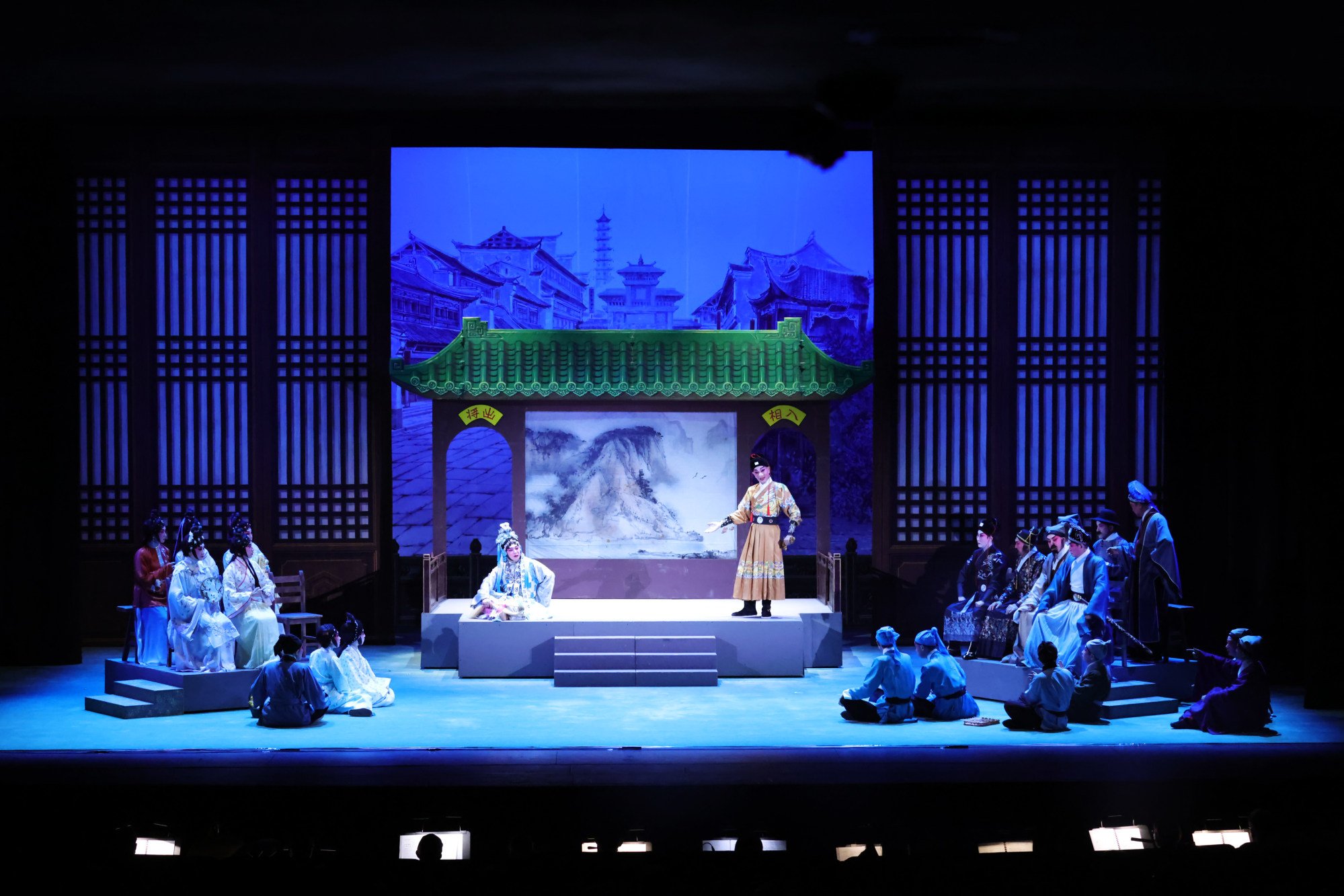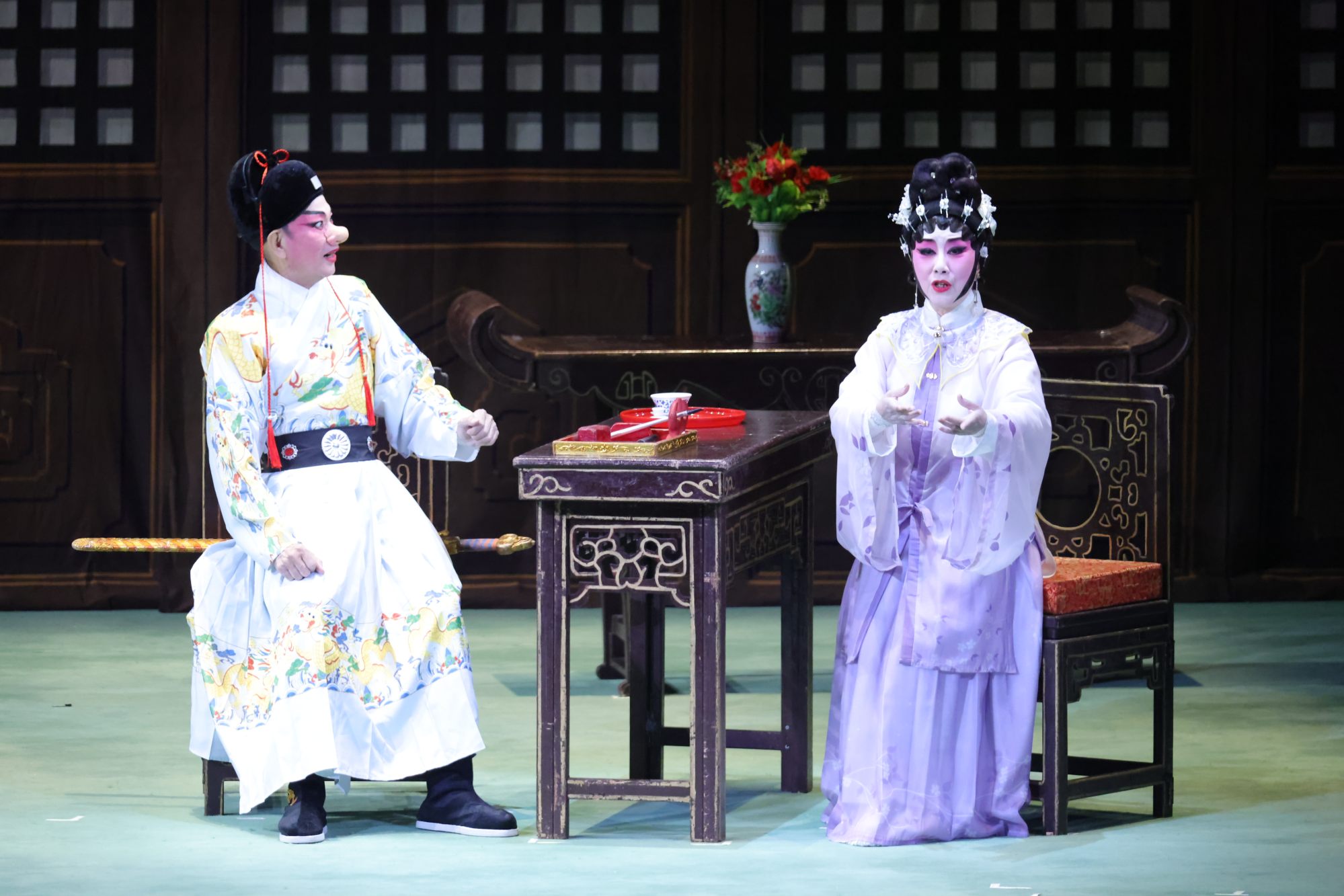Screen incarnations include a 1990 period film with Gérard Depardieu, Erica Schmidt’s 2021 musical Cyrano starring Peter Dinklage and, perhaps most famously, the 1987 romantic comedy Roxanne with Steve Martin.

Many in the audience would already know the set-up: Cyrano, a sensitive and poetic soldier uncomfortable with his outsize nose, is in love with the beautiful Roxane, who only has eyes for Cyrano’s handsome but dim-witted colleague Christian. Cyrano pours out his heart in letters to Roxane under Christian’s name. Years later, with Christian dead and Cyrano dying, Roxane discovers the truth.
Law’s adaptation (he is credited as writer and director as well as star) reveals years of consideration. Cyrano and Christian – now named Zhu Bufan and Zhu Yihao, and performed by Law and Sun Kim-long – are uprooted from 17th-century France to the Ming dynasty, the Franco-Spanish War’s Siege of Arras now shifted with reasonable historical accuracy to the Tumu crisis near the Great Wall. Rostand’s original Roxane remains equally recognisable as Princess Xu Qishan, brought to life by Law’s long-time personal and professional partner Liza Wang Ming-chun.
Visually, a surprisingly large cast moved freely in Joshua Yuen’s sumptuous sets, which drew heavy influences from cinema and period stage drama. Not for Yuen was Chinese opera’s traditional “one-table-two-chairs” minimalism (though his elaborate spreads usually had a table and chairs somewhere).

Likewise, Law’s adaptation often fell outside Cantonese opera conventions. For one of the most famous love triangles in Western drama, the characters make a conspicuously odd fit in traditional role-types. Rarely in Chinese opera will the handsome figure be as dumb as an ox, or the noble scholar-warrior be wearing a clown nose.
At its best, tensions within the form echoed tensions between the characters. As Zhu Bufan, Law revelled in such contradictions, harnessing disconnects between genre expectations and actual content to humorous use (though on Sunday afternoon, Law’s scholar-warrior displayed more verbal than martial credibility).
On the other hand, Sun Kim-long’s Zhu Yihao was practically a mirror image of Bufan, confident where the other is insecure and vice versa, but their duality and co-dependency rarely reached beneath the surface.

Cantonese opera famously absorbs and repurposes musical sources with abandon, and Pang Kam-shun’s musical direction gleefully upheld that tradition with mash-up quotes ranging from the Wong Fei-hung theme to the chorus of a George Lam pop song and – less explicably – a long Cantonised riff on the Neapolitan song Torna a Surriento. Less consistent was the mash-up in dramatic structure, which proved if anything a bit too faithful to the original (Cantonese opera shares with 19th-century French drama a vestigial patience for unwieldy exposition).
After the interval, the narrative structure fell more or less into place. But a few set pieces – like the famous “balcony” scene with Bufan orating to the Princess in the shadows while Yihao lip-synchs in her line of vision – fell well beyond traditional form.
So too did the final scene, although the dramatic results were all the better for it. As Law’s Zhu Bufan recites his final letter, Wang’s Princess Xu gradually realises that he was the true author. The subtle, controlled effect from both actors throughout the scene was neither the stylised expression of Cantonese opera nor the naturalistic reaction of Western theatre but a blend of the two that somehow, in that moment, was precisely the style to convey the point.
“Cyrano de Bergerac – A Cantonese Opera Interpretation,” Chinese Culture Festival 2024, Grand Theatre, Hong Kong Cultural Centre. Reviewed: June 16, 2:30pm.

